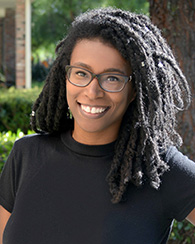Mathematics for Whom: Reframing and Humanizing Mathematics
by Cathery Yeh and Brande M. Otis
Introduction
Schools are “inherently cultural spaces where different forms of knowing and being are being validated” (Nasir, Hand, & Taylor, 2008, p. 206). Every decision a mathematics teacher makes, “[w]hich properties of arithmetic, which formulas in algebra, which theorems in geometry, and in what context, and for what purpose” (Kumashiro, 2004, p. 96), sends powerful messages about what is valued and whose knowledge and experiences are deemed important.
Mathematics is traditionally seen as the most neutral of disciplines, removed from the arguments and controversies of politics and social life. We join an emerging group of mathematics educators, researchers, and activists to contend that mathematics is political (Frankenstein, 1983; Gutiérrez, 2013; Gutstein, 2008; Yeh, 2018a). Mathematics has been used as a weapon to legitimize capitalist interests, producing stratified achievement levels and positioning some children and families of color at the bottoms of social strata (Ellis, 2008; Yeh, 2018a). How children perform in mathematics is not a reflection of innate ability, disposition, or soft skills, but instead is a product of the organization of schooling, shaped by cultural, historical, and political roots (Ellis, 2008; Nasir, et al., 2008; Yeh, 2018a).
About the Authors
 Cathery Yeh is an assistant professor of mathematics education at Chapman University. Her research focuses on social justice mathematics and capturing counter-narratives of mathematics pedagogies that disrupt language, gender, and dis/ability hierarchies. Her scholarship builds on 15 years of experience teaching in dual-language classrooms in Los Angeles and abroad in China, Chile, Peru, and Costa Rica. Cathery can usually be found in her favorite place—mathematics classrooms—working and learning with students and teachers.
Cathery Yeh is an assistant professor of mathematics education at Chapman University. Her research focuses on social justice mathematics and capturing counter-narratives of mathematics pedagogies that disrupt language, gender, and dis/ability hierarchies. Her scholarship builds on 15 years of experience teaching in dual-language classrooms in Los Angeles and abroad in China, Chile, Peru, and Costa Rica. Cathery can usually be found in her favorite place—mathematics classrooms—working and learning with students and teachers.
 Brande M. Otis is currently a PhD student in Urban Schooling at the University of California, Los Angeles (UCLA). Under the advisement of Dr. Robert Cooper, Brande’s research interests include social stratification in schools, racial identities, disability, and providing educational opportunities for Students of Color through school reform and policy change. Prior to continuing her education at UCLA, Brande interned as a psychologist in the Long Beach Unified School District, where she advocated with and for students with disabilities.
Brande M. Otis is currently a PhD student in Urban Schooling at the University of California, Los Angeles (UCLA). Under the advisement of Dr. Robert Cooper, Brande’s research interests include social stratification in schools, racial identities, disability, and providing educational opportunities for Students of Color through school reform and policy change. Prior to continuing her education at UCLA, Brande interned as a psychologist in the Long Beach Unified School District, where she advocated with and for students with disabilities.